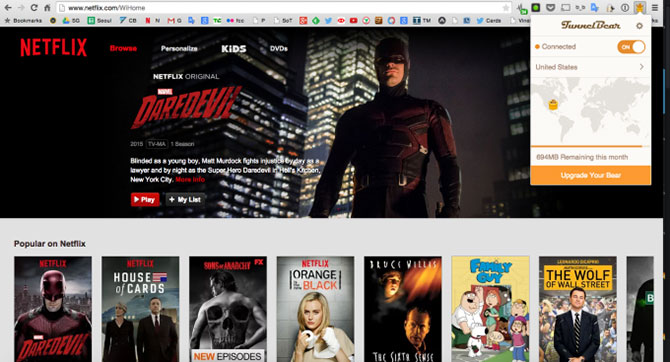

We'll walk you through the setup process, from choosing the right VPN for your needs to setting up the app on your Chromebook

When it comes to protecting the privacy of your web traffic, however, you'll need an additional tool: an Android VPN app on your Chromebook. How to Set Up Two-Factor AuthenticationĬhromebooks are portable and hard to hack, making them excellent tools for security-minded folks on the go.How to Record the Screen on Your Windows PC or Mac.How to Convert YouTube Videos to MP3 Files.How to Save Money on Your Cell Phone Bill.How to Free Up Space on Your iPhone or iPad.How to Block Robotexts and Spam Messages.

I’ve let my paid Tunnelbear service lapse, but I tried out the extension on my Linux Mint laptop in Chrome using Canada’s CBC’s website, whose videos are normally region-blocked for yours truly. However, it’ll be good enough for the average person’s general usage, such as accessing region-blocked streaming video services-Canadians who want to see the US version of Netflix, say-or those using unencrypted public Wi-Fi, such as that in many coffeeshops. It’s also not as secure-the extension uses AES 128-bit encryption versus the apps’ AES 256-bit encryption. Since the extension is an encrypted proxy, it doesn’t have the full range of detailed VPN options like what the regular Tunnelbear apps for mobile devices, OS X, and Windows offers. The Chrome plugin works with the free Tunnelbear package, though currently has a 500MB data limit, even if you increase the limit to 1GB via tweeting about Tunnelbear. That’s finally changed Tunnelbear’s released a Chrome extension that, when installed, serves as an encrypted proxy and lets one turn on/off support to a range of countries (Canada, UK, etc.) easily with an icon in Chrome’s toolbar. The easy-to-use VPN service Tunnelbear has had support for OS X, Windows, and mobile devices for awhile, but has never officially supported Linux, or by extension Chrome OS.


 0 kommentar(er)
0 kommentar(er)
